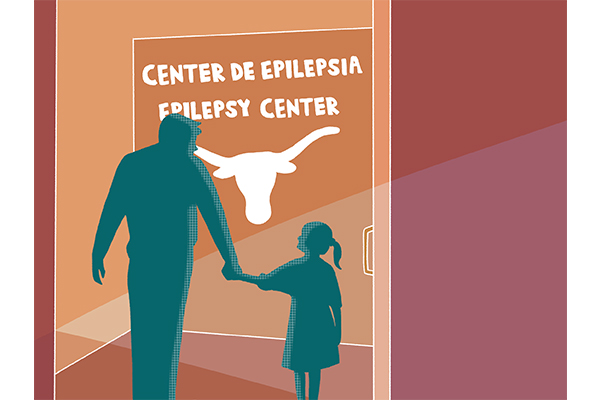UT Health Austin will open an epilepsy clinic at Dell Children’s Medical Center for Spanish-speaking families by mid-November, lead doctor Karen Skjei said.
Skjei said the clinic has two goals: to improve care for the Spanish-speaking subpopulation in Central Texas and to create a trend of Spanish-inclusive clinics by publishing research from the UT clinic.
“Our hope is that if we can demonstrate that the clinic does improve epilepsy (and) psychosocial outcomes in the limited English proficient Spanish-speaking population, then we can publish that data,” Skjei said. “Hopefully the trend will kind of spread beyond just Central Texas, and we can have an even bigger impact.”
Skjei said the research at the clinic will be voluntary. Families will be surveyed before and after their visit to gauge the effectiveness of the clinic, she said.
“My big hope is that families are willing to participate and give up their time in order to further this research,” Skjei said.
Skjei said currently, her Spanish-speaking patients usually rely on either family members to translate or professional translators, which can negatively impact visits. She said it can take time away from visits or create a lack of trust between the patient and care provider.
“In order to have an effective relationship, there has to be obviously good communication but also a degree of trust,” Skjei said. “It's hard to develop that same relationship when you're working through an interpreter.”
Rafael Sanchez, public health and urban studies junior, volunteered as an interpreter at the Austin Volunteer Healthcare Clinic in Austin, a free clinic for low-income, uninsured Travis County residents.
“Doing this really helped me in being more aware of how much this help is needed,” Sanchez said. “It makes a whole lot of a difference in confidence, self-esteem and overall inclusion into a field where many non-English speaking immigrants feel the fear of the white coat.”
Fay Medina, international relations and global studies and economics senior, translates for her Spanish-speaking family members and said they are not comfortable going to the doctor unless it is an emergency.
“I think this mindset can be tackled by offering services to Spanish-speaking families,” Medina said. “It is also nice to see someone you can relate to, even if it's just language. I think it will make families feel more comfortable.”





















